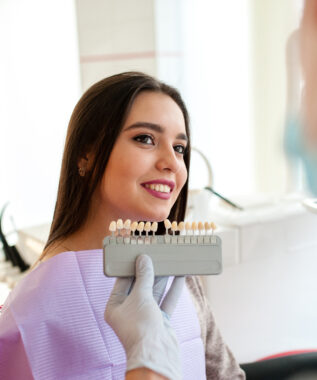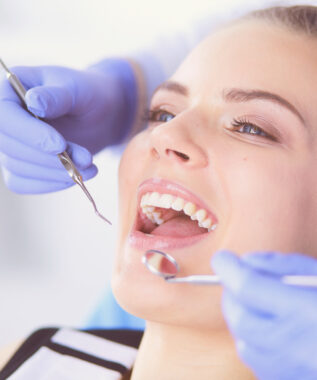 Dental discomfort can range from minor irritations to excruciating pain. While most dental issues can wait for a scheduled appointment, certain situations demand immediate attention. Knowing how to differentiate between routine dental concerns and genuine dental emergencies is important for your oral health. In today’s blog, your Leawood, KS, dentist gives you some guidance on how to identify when you may need emergency dentistry.
Dental discomfort can range from minor irritations to excruciating pain. While most dental issues can wait for a scheduled appointment, certain situations demand immediate attention. Knowing how to differentiate between routine dental concerns and genuine dental emergencies is important for your oral health. In today’s blog, your Leawood, KS, dentist gives you some guidance on how to identify when you may need emergency dentistry.
Chipped, Fractured, or Knocked-Out Teeth
Accidents can result in chipped, fractured, or knocked-out teeth. These situations require prompt attention, as the chances of saving a tooth decrease with time. Place the knocked-out tooth in milk or a tooth preservation kit and rush to the dentist within the hour for the best chance of successful reattachment.
If a filling or crown becomes loose or falls out, the underlying tooth is exposed and vulnerable to damage or decay. Contact your dentist to address the issue promptly.
Extreme Toothache or Swelling
One of the most common dental emergencies is an intense and persistent toothache. This type of pain can indicate an underlying issue, such as an abscess or severe infection. Swelling of the gums, face, or neck can be also sign of an infection. These conditions can worsen rapidly, potentially leading to severe complications if left untreated. Seek immediate dental care to prevent the infection from spreading.
Severe Pain in Jaw
Persistent jaw pain can be attributed to several conditions, including temporomandibular joint (TMJ) disorders or dental infections. A dentist can diagnose the cause and provide appropriate treatment.
Managing an Urgent Situation
The situations above are not an exclusive list. If you are in doubt, it is best to contact your dentist. In some of these situations, there are some steps you can take to alleviate discomfort or minimize further damage once you have called for help:
- Rinse your mouth with warm water to clean the affected area.
- Use dental floss to remove any debris lodged between teeth.
- Apply a cold compress to reduce swelling and pain.
- Over-the-counter pain relievers can help manage discomfort temporarily.
However, it’s important to note that these measures are only temporary solutions and should not replace professional dental care.
Prevention is Key
Ultimately, the key to avoiding dental emergencies is preventive care. Regular dental check-ups can help identify potential issues before they become emergencies. Maintaining good oral hygiene, such as regular brushing and flossing, can also go a long way in preventing dental problems.
Are You Prepared for a Dental Emergency?
Dental emergencies can be scary in the moment. If an urgent situation arises, you are not alone. Call Dreem Dentistry in Leawood, KS by calling )913)681-5500 if you need help with a dental emergency. We also serve patients who live in Overland Park, South KC, South OP, Martin City, MO, and all surrounding communities.






